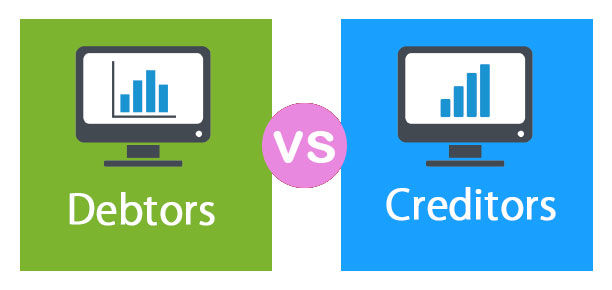6 differences between Debtor and Creditor
- Irvine Bookkeeping
- Nov 5, 2019
- 2 min read
Updated: Jun 7, 2023

In the realm of finance, understanding the difference between debtor and creditor is essential. A debtor refers to an individual, business, or entity that owes money or has an outstanding debt to repay. On the other hand, a creditor is the opposite, representing the entity to whom the debt is owed. The creditor lends money, extends credit, or provides goods or services with the expectation of being repaid by the debtor. The debtor-creditor relationship forms the foundation of financial transactions, with creditors expecting timely payments from debtors. By comprehending the dynamics of the creditor vs debtor dynamic, individuals and businesses can navigate financial obligations, manage debts responsibly, and ensure a harmonious financial landscape.
Creditors are those who extend the loan or credit to a person, an organization, or a firm whereas Debtors are those who takes the loan and in return has to pay back the amount of money within a stipulated time period with or without interest.
You may also want to read:
Now, let's take a closer look on their roles.
Creditors
Creditors can be used to describe a person who gives a loan to any other person and in return, he supposes to get interest on the loan he is giving.
There are two types of creditors:
Personal creditors like family, friends, etc.
Real creditors like banks and financial institutions
Therefore, a creditor could be a person as well as an institution.
The term creditor could be used for short-term loans, long-term bonds, and mortgage loans. Creditors are mentioned as a liability in the balance sheet of an organization.
Debtors
A debtor can be defined as the individual or firm who receives the benefit without paying for it in terms of money or money’s worth immediately but is liable to pay the money back in due course of time. The debtors are shown as an asset in the balance sheet.
Here is a table of the top 6 differences between a creditor and a debtor:

In sum, the creditor vs debtor is different, creditors are those who lend money and debtors are those who owns money. To ensure the smooth flow of the working capital cycle, a company must keep a track of the time lag between the receipt of payment from the debtors and the payment of money to the creditors.
Let IrvineBookkeeping help you send your invoices and track the payments for you!
If you need advice or services on any aspect of bookkeeping, accounting, and tax, our specialists are ready to help. Get in touch with us for a free quote.
#Debtors #Creditors #AccountsReceivable #createinvoices #liability #bookkeeping #receipt #payment #invoice #loan #IrvineBookkeeping




